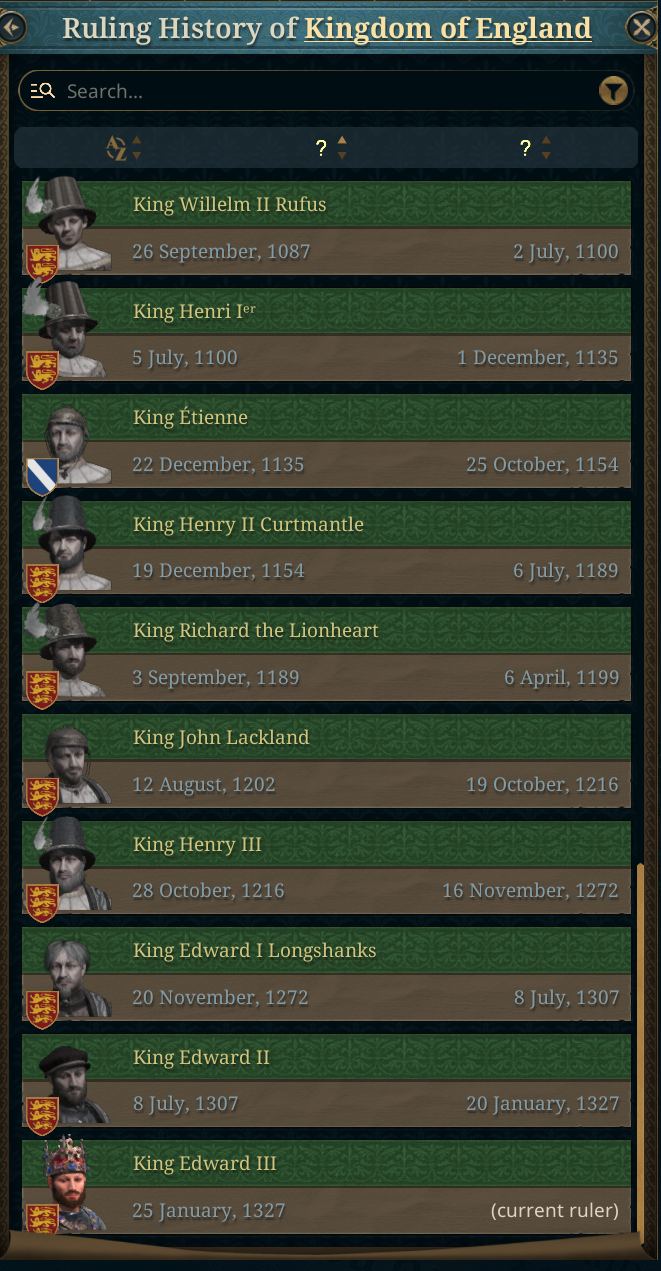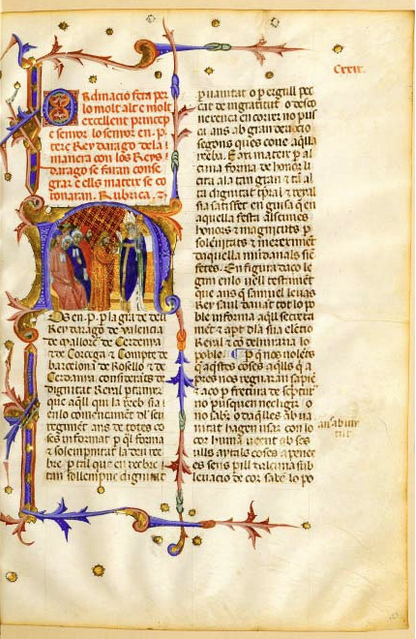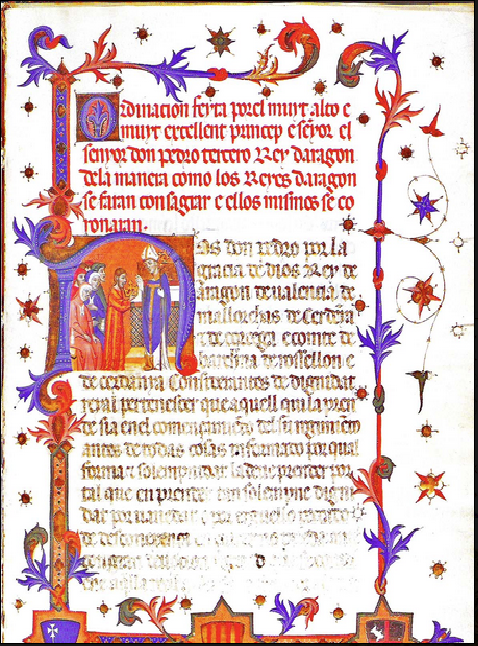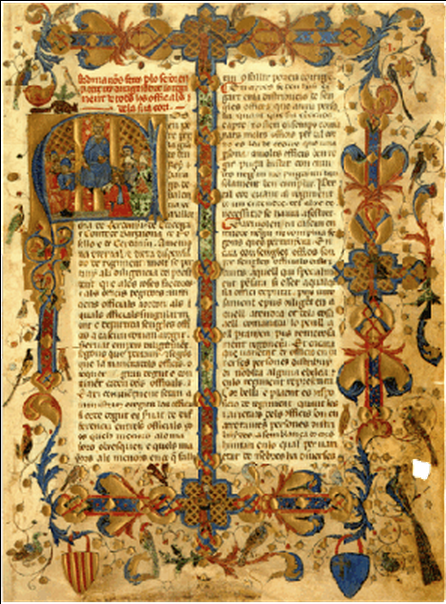Welcome to the 15th Tinto Talks, where we ask for feedback on our extremely crazily top secret game which has the codename Project Caesar.
One thing that many have asked for has been a more in-depth dynastical gameplay, so here it is.
Characters
Before we delve into the dynamics of dynastic gameplay, we must first talk about their building blocks, the characters.
.jpg)
Here is a European King with an early 18th century background.
While not copying the Crusader Kings mechanics, a Character in Project Caesar is a bit more alive than in let's say EU4. A character is born, lives, and eventually dies.
Every character has Administrative, Diplomatic and Military Attributes ranging from 0-100. Of course, these attributes will not add any sort of mana, but they will impact how well the character will perform certain roles. One example is that the diplomatic ability of an admiral impacts the morale of the navy he leads.
Newborn characters start with 0, but that grows until they are adults depending on what childhood trait they have. You can also assign your rulers’ children and grandchildren a specific education during their childhood

This is a trait that when on the heir of the player it increases the chance of hunting accidents by 200%.
Characters ruling a country will gain up to 3 traits, depending on how long they have ruled.
They are gained while ruling a country. Characters that are generals or admirals will also get traits after combat. There are also unique traits for characters that are REDACTED or OTHER_SECRET_THING.
Characters also have a culture they come from, a religion they follow, they keep track of where they were born, and where they currently are living. They belong to an estate, which for most characters tends to be the nobles estate.
Many characters will have a father and/or a mother as well. For some historical characters at the start of the game that will not necessarily be true.
The number of spouse(s) a character can have depends on religions and laws, but the number of children they get depends more on the fertility of the parents.
So what can you do with characters? Well, this is not Crusader Kings, so the characters themselves are not as important, and there are no character specific events like in Imperator either. In this game, characters are tools to be used for the greater good. If that means marrying off your daughter to secure an alliance with France, then that's what you have to do. You can arrange marriages in your country, send less useful characters into convents, ennoble great people, and much more.
.jpg)
This is an African ruler, in his throne room, which while beautiful, is just a background image…
Speaking of marriages, royal marriages in Project Caesar are not just sending a diplomat, here it is far more limited, as you have to actually marry real characters, and often this is a vital action. If you can’t arrange a royal marriage with a country of enough prestige, that has a young consort, you may be forced to marry a local noble from your country, or worse, even a lowborn.
A Royal Marriage between two rulers will immediately form a union between those two countries. Every country has its own inheritance laws, which if they differ, may cause a Union to break, as the rulers would be different. This is probably not the audience where I need to explain the difference between Salic Law and Semi-Salic Law right?

And who was the founder of this dynasty?
Dynasties are important, as they impact diplomacy in direct and indirect ways. As some inheritance laws prefer their own dynasty, and having the same dynasty can improve opinions between countries.
As in almost all previous GSG, the game will keep track of who has ruled that country before, just so you can go back and admire them. We have tried to get in as much history as possible here, even if my heathen content designers refuse to have Odin as the original King of Sweden!

Of course regnal numbering and actual names depend on many different things..
Stay tuned, next week we’ll be back and we will then talk about how the cabinet will work.
One thing that many have asked for has been a more in-depth dynastical gameplay, so here it is.
Characters
Before we delve into the dynamics of dynastic gameplay, we must first talk about their building blocks, the characters.
.jpg)
Here is a European King with an early 18th century background.
While not copying the Crusader Kings mechanics, a Character in Project Caesar is a bit more alive than in let's say EU4. A character is born, lives, and eventually dies.
Every character has Administrative, Diplomatic and Military Attributes ranging from 0-100. Of course, these attributes will not add any sort of mana, but they will impact how well the character will perform certain roles. One example is that the diplomatic ability of an admiral impacts the morale of the navy he leads.
Newborn characters start with 0, but that grows until they are adults depending on what childhood trait they have. You can also assign your rulers’ children and grandchildren a specific education during their childhood

This is a trait that when on the heir of the player it increases the chance of hunting accidents by 200%.
Characters ruling a country will gain up to 3 traits, depending on how long they have ruled.
They are gained while ruling a country. Characters that are generals or admirals will also get traits after combat. There are also unique traits for characters that are REDACTED or OTHER_SECRET_THING.
Characters also have a culture they come from, a religion they follow, they keep track of where they were born, and where they currently are living. They belong to an estate, which for most characters tends to be the nobles estate.
Many characters will have a father and/or a mother as well. For some historical characters at the start of the game that will not necessarily be true.
The number of spouse(s) a character can have depends on religions and laws, but the number of children they get depends more on the fertility of the parents.
So what can you do with characters? Well, this is not Crusader Kings, so the characters themselves are not as important, and there are no character specific events like in Imperator either. In this game, characters are tools to be used for the greater good. If that means marrying off your daughter to secure an alliance with France, then that's what you have to do. You can arrange marriages in your country, send less useful characters into convents, ennoble great people, and much more.
.jpg)
This is an African ruler, in his throne room, which while beautiful, is just a background image…
Speaking of marriages, royal marriages in Project Caesar are not just sending a diplomat, here it is far more limited, as you have to actually marry real characters, and often this is a vital action. If you can’t arrange a royal marriage with a country of enough prestige, that has a young consort, you may be forced to marry a local noble from your country, or worse, even a lowborn.
A Royal Marriage between two rulers will immediately form a union between those two countries. Every country has its own inheritance laws, which if they differ, may cause a Union to break, as the rulers would be different. This is probably not the audience where I need to explain the difference between Salic Law and Semi-Salic Law right?

And who was the founder of this dynasty?
Dynasties are important, as they impact diplomacy in direct and indirect ways. As some inheritance laws prefer their own dynasty, and having the same dynasty can improve opinions between countries.
As in almost all previous GSG, the game will keep track of who has ruled that country before, just so you can go back and admire them. We have tried to get in as much history as possible here, even if my heathen content designers refuse to have Odin as the original King of Sweden!

Of course regnal numbering and actual names depend on many different things..
Stay tuned, next week we’ll be back and we will then talk about how the cabinet will work.



.jpg)




